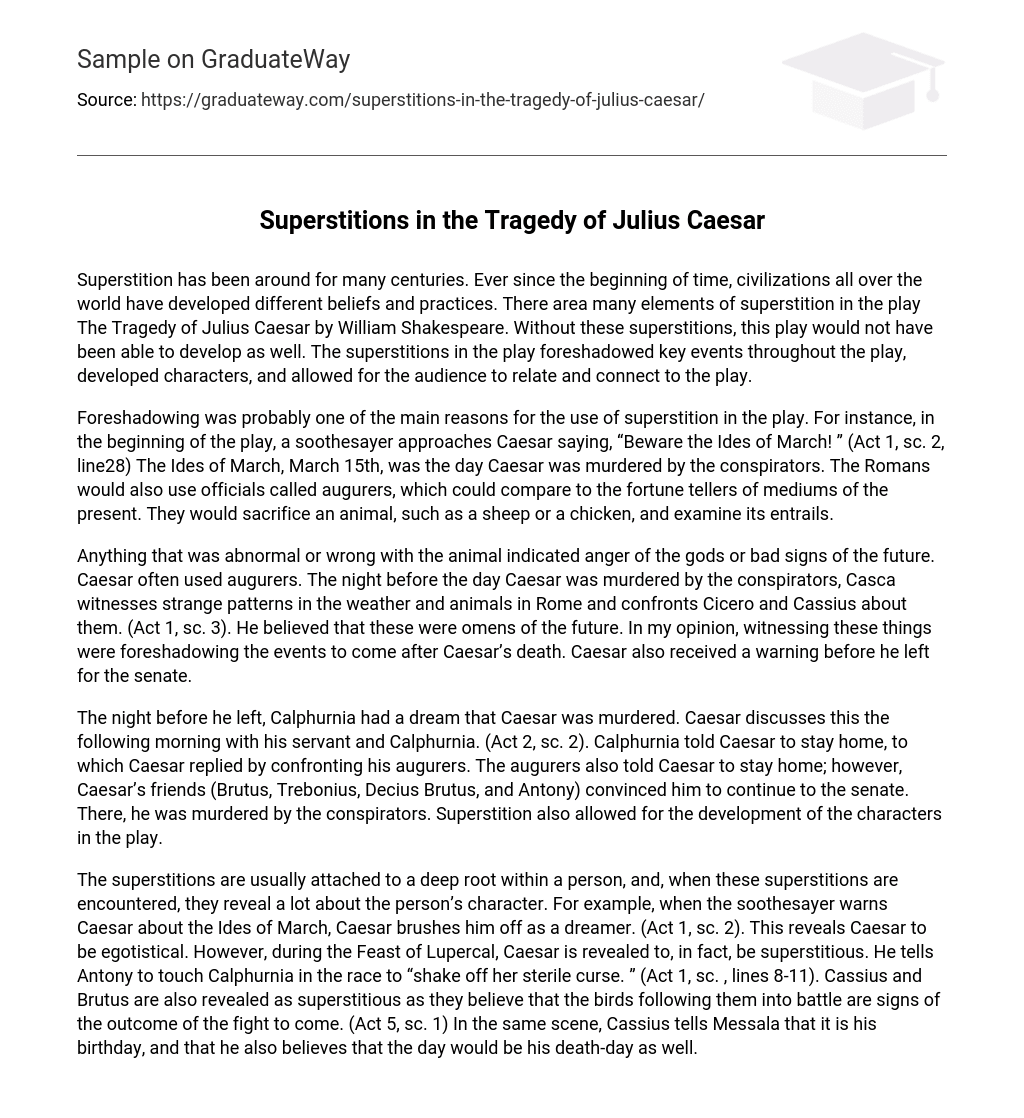Superstition has been around for many centuries. Ever since the beginning of time, civilizations all over the world have developed different beliefs and practices. There area many elements of superstition in the play The Tragedy of Julius Caesar by William Shakespeare. Without these superstitions, this play would not have been able to develop as well. The superstitions in the play foreshadowed key events throughout the play, developed characters, and allowed for the audience to relate and connect to the play.
Foreshadowing was probably one of the main reasons for the use of superstition in the play. For instance, in the beginning of the play, a soothesayer approaches Caesar saying, “Beware the Ides of March! ” (Act 1, sc. 2, line28) The Ides of March, March 15th, was the day Caesar was murdered by the conspirators. The Romans would also use officials called augurers, which could compare to the fortune tellers of mediums of the present. They would sacrifice an animal, such as a sheep or a chicken, and examine its entrails.
Anything that was abnormal or wrong with the animal indicated anger of the gods or bad signs of the future. Caesar often used augurers. The night before the day Caesar was murdered by the conspirators, Casca witnesses strange patterns in the weather and animals in Rome and confronts Cicero and Cassius about them. (Act 1, sc. 3). He believed that these were omens of the future. In my opinion, witnessing these things were foreshadowing the events to come after Caesar’s death. Caesar also received a warning before he left for the senate.
The night before he left, Calphurnia had a dream that Caesar was murdered. Caesar discusses this the following morning with his servant and Calphurnia. (Act 2, sc. 2). Calphurnia told Caesar to stay home, to which Caesar replied by confronting his augurers. The augurers also told Caesar to stay home; however, Caesar’s friends (Brutus, Trebonius, Decius Brutus, and Antony) convinced him to continue to the senate. There, he was murdered by the conspirators. Superstition also allowed for the development of the characters in the play.
The superstitions are usually attached to a deep root within a person, and, when these superstitions are encountered, they reveal a lot about the person’s character. For example, when the soothesayer warns Caesar about the Ides of March, Caesar brushes him off as a dreamer. (Act 1, sc. 2). This reveals Caesar to be egotistical. However, during the Feast of Lupercal, Caesar is revealed to, in fact, be superstitious. He tells Antony to touch Calphurnia in the race to “shake off her sterile curse. ” (Act 1, sc. , lines 8-11). Cassius and Brutus are also revealed as superstitious as they believe that the birds following them into battle are signs of the outcome of the fight to come. (Act 5, sc. 1) In the same scene, Cassius tells Messala that it is his birthday, and that he also believes that the day would be his death-day as well. Superstitions have been a large part of the human race. Shakespeare knew that, to easily connect with the audience, superstition would have to play a key role in his works.





